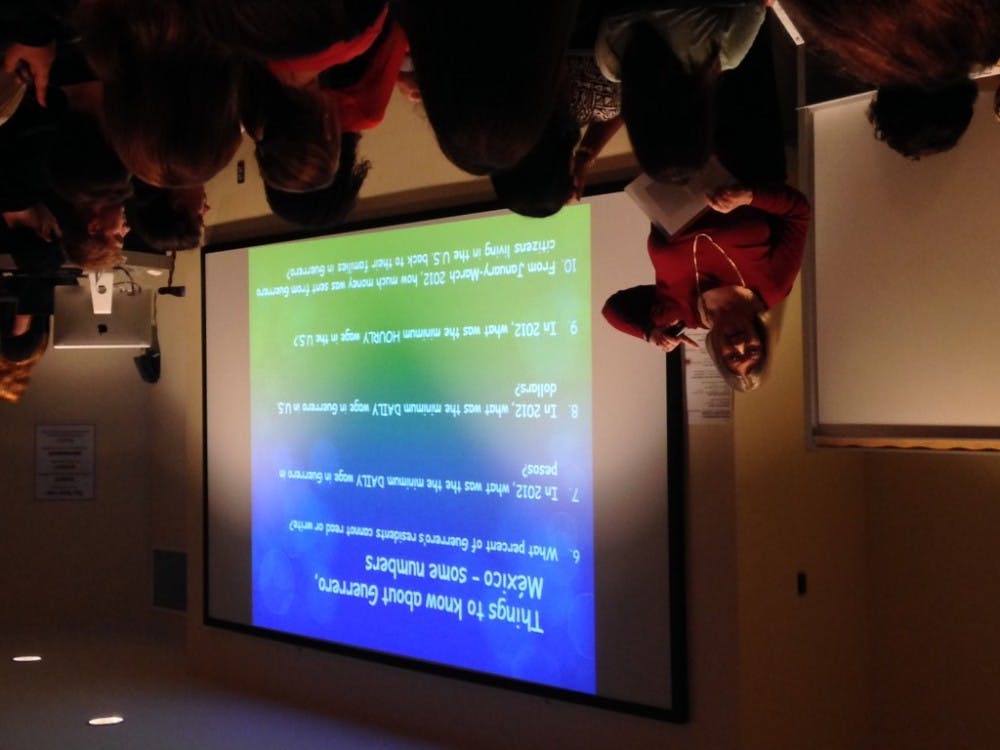“Aqui y Alla” translates into “Here and There,” which is director Antonio Mendez Esparza’s first drama feature film. This Spanish film received high honors at the Cannes Film Festival in 2012 and was featured at Elon University’s Spanish Film Club’s ongoing festival Sept. 20, which aims to celebrate the new wave of Hispanic cinema this semester.
The film centers on Pedro De los Santos who has recently returned to his detached family in the impoverished town of Guerrero, Mexico from a prolonged stint working in New York City. “Aqui y Alla” utilizes amateur actors playing characters with their same first names as an intention to be variations of these real-life people.
The movie offers a mildly compelling plot and no innovative insight into the human condition, nor is it a character study of its careworn protagonist. The film simply presents a series of sequences intended to illustrate a real-world situation faced by many Mexican citizens in a similar socioeconomic predicament. It is the story of a man who has familial and cultural ties to a homeland in which he cannot ultimately stay because of its lack of employment opportunity.
But the film was not entirely unsuccessful. Although it suffers a lack of insight into one-dimensional caricatures of a developing Mexican family, the lack of experience of the actors provides a depth of realism to the piece. This sometimes made viewers question if they were watching a documentary or a feature film. Still, for the most part, audiences were only offered a shallow glance into the characters’ emotional struggles and too much is left to assumption.
The most successful insight provided by the film was its illustrative look into the shortcomings of the Mexican healthcare system. Pedro almost loses both his wife and newborn child due to a lack of nearby capable facilities and on-site medications, which he himself must seek out from nearby pharmacies. Additionally, Pedro must sleep on the street outside the hospital during his wife’s prolonged stay. This is a particularly lengthy episode in the film and probably the film’s most perceptive and disconcerting.
Though often overly restrained, “Aqui y Alla” ultimately works due to its authentic portrait of a misrepresented issue, which surrounds the citizens of the United States, but about which most understand little. The film succeeds in revealing the struggle of an undocumented immigrant in an effort to provide for a distant family.
This series of snapshots, though not as compelling as it possibly could have been, endeavors to humanize a situation of which most U.S. citizens and Elon students do not have any firsthand knowledge. Because of this informative and empathetic quality, it is indeed a film that should be shown to anyone attempting to wholly understand the immigration issue and its related culture.
The Spanish Film Festival is free to the public and will continue through November. The next film, “The Return,” will be screened at 6 p.m. Oct. 4 in LaRose Digital Theatre. All the festival’s offerings can be found online on Elon’s cultural calendar.


